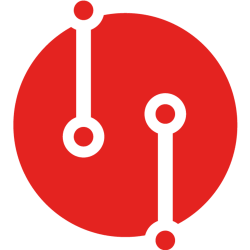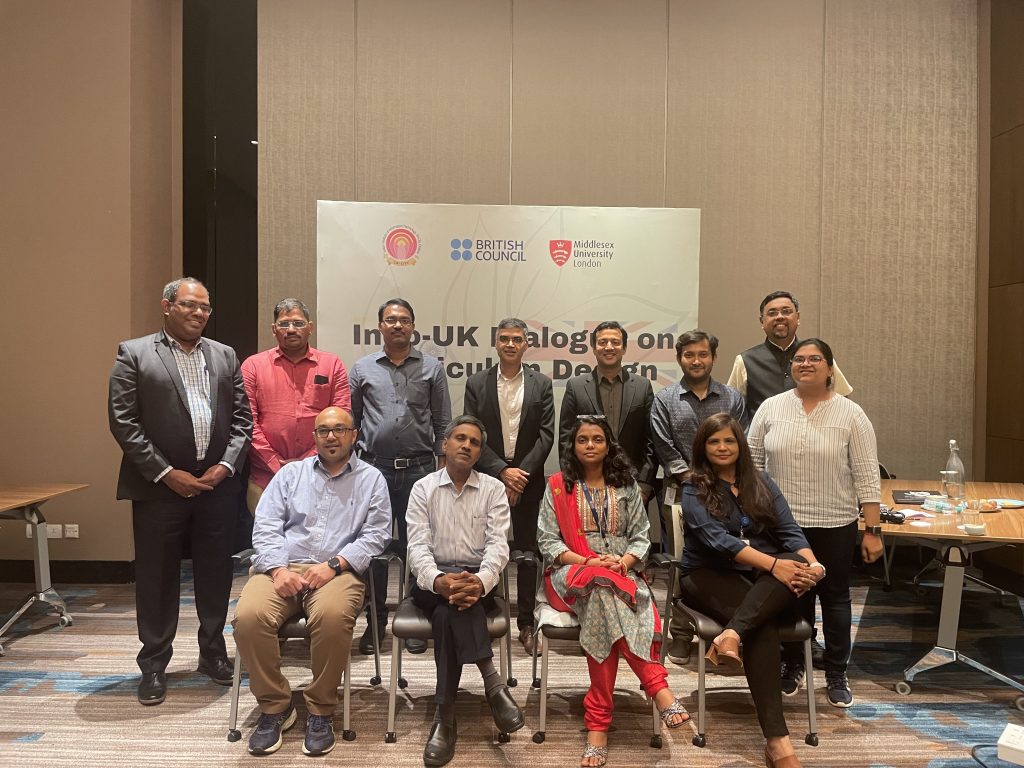British Council Going Global Partnership – Exploratory Grant
Academic Collaboration between Middlesex University (MU) UK and Indian Instititute of Information Technology, Sri City, India (IIITS)
Background
Internet of Things (IoT) is a key driver of technologies like smart grids, machine-to-machine interactions, digital twins and smart transportations that drive global resilient infrastructures. India needs trained engineers in areas of IoT and wireless networks for applications like smart manufacturing, climate change technologies and industrial IoT to answer the pledges of climate resilience and disaster planning. Through the British Council’s Going Global Partnerships programme, an interdisciplinary first of its kind, specialization program on “Industrial IoT for automation, with focus on Digital Twin and Wireless Networks” would be jointly developed starting in July 22. Given that Sri City and South India is a manufacturing hub, this programme would prepare the students for future careers set to sweep the Indian industrial boom. The joint work will build upon the existing research outputs of DST UKIERI-2018-19-11 and feed directly to create a novel academic TNE programme, with feedback from existing IIITS students.
Global impact in terms of creating opportunities for young people in India
Over the last 5 years, the application of Industrial IoT (IIoT) has been exponentially growing globally with 100’s of global start-ups that are looking at developing climate resilient manufacturing solutions. Given that IIoT is driven by strong wireless communications as a backbone, it is imperative that apart from Data Analytics, Machine Learning and Digital Twin, the industries focus on developing and maintaining a low-cost yet extremely reliable, secure and efficient network connection. Globally, industries offering IoT solutions look for young and bright engineers who are well-aware of IoT, Digital Twin, autonomous systems and wireless communications technologies. Most of the IoT-based programmes in India integrate it with Data Analytics, Cyber Security, Distributed System, focusing more on the computing aspects. However, sectors like transport, communications, utilities and energy require automation at its heart for making them resilient. Hence, it requires deep knowledge of connected devices, network security and seamless communication through the Internet to create Digital Shadow and Digital Twin. However, to the best of our knowledge, there is NO programme in India that offers a comprehensive programme on IIoT that covers Digital Twin as part of IIoT.
MU and IIITS intend to take their initial research work via previous DST-UKIERI project forward and create a unique academic programme on IIoT that would not only have courses on Digital Twin technologies and applications, but also on Network Security, Advanced Wireless Communication, Networking and IoT with industry applications that would train the current and future generation students to bridge the gap of AI/ML and automation.
The members of this project include the following:
Middlesex University UK
- Dr Purav Shah (PI)
- Dr Ramona Trestian (Co-PI)
- Prof Huan Nguyen (Advisor)
- Prof Mehmet Karamanoglu (HoD – DEM)
Indian Instititute of Information Technology, Sri City, India
- Dr Hrishikesh Venkataraman (PI)
- Dr Vara Prasad (Co-PI)
- Dr K Divyabramham (Advisor)
- Dr Siva Kotam Raju (HoD – ECE)
As part of the project, the team conducted a Indo UK dialogue on 11th May 2022 in Bengaluru, India (blended mode), where they invited industry professionals from UK and India to provide insights into curriculum developments and industry requirements of future engineers. The key questions answered during this dialogue exchange were:
- How to translate the tech-developments in the industry to academia?
- How to leverage and bring-in industrial knowledge into the course delivery?
- What new courses/modules to be developed for the Electronics and Communications Engineering undergraduate level?
Indo- UK Dialogue on Curriculum Development 11th May Workshop, Bengaluru, India
It is expected that the final outcomes of this project will lead to the following:
- Offering industry-oriented curricula for State-of-the-Art Technologies for University Graduates
- Mechanism for imparting skill-sets through unique specialization programs at under-graduate and post-graduate level
- Involving industry experts at all stages such as module-level, course-level and program-level so that students are ready to hit the ground running from day one of graduation.
A second workshop to realise the potentials of this project will be held on 15th July 2022, again in blended mode. Participants in India would be eligible for in-person attendance. The workshop is aimed to disseminate the information on specific skill-sets required for next generation of university graduates, primarily in the area of Industry 4.0. The workshop would present the different technologies such as Internet of Things (IoT), Cyber Physical System (CPS), Wireless Communication, Networking that the university graduates need to pick up, the application domain such as Industry 4.0, Smart Manufacturing and aspects of product life cycle (PLC), predictive maintenance, etc. The workshop would have invited talks from several UK and Indian academia and industry professionals on specific skill-sets for improving employability and the industrial applications. The workshop is a joint effort by Middlesex University, UK and Indian Institute of Information Technology (IIIT) Sri City, India
2nd Workshop on Skill-sets for University graduates: Link


